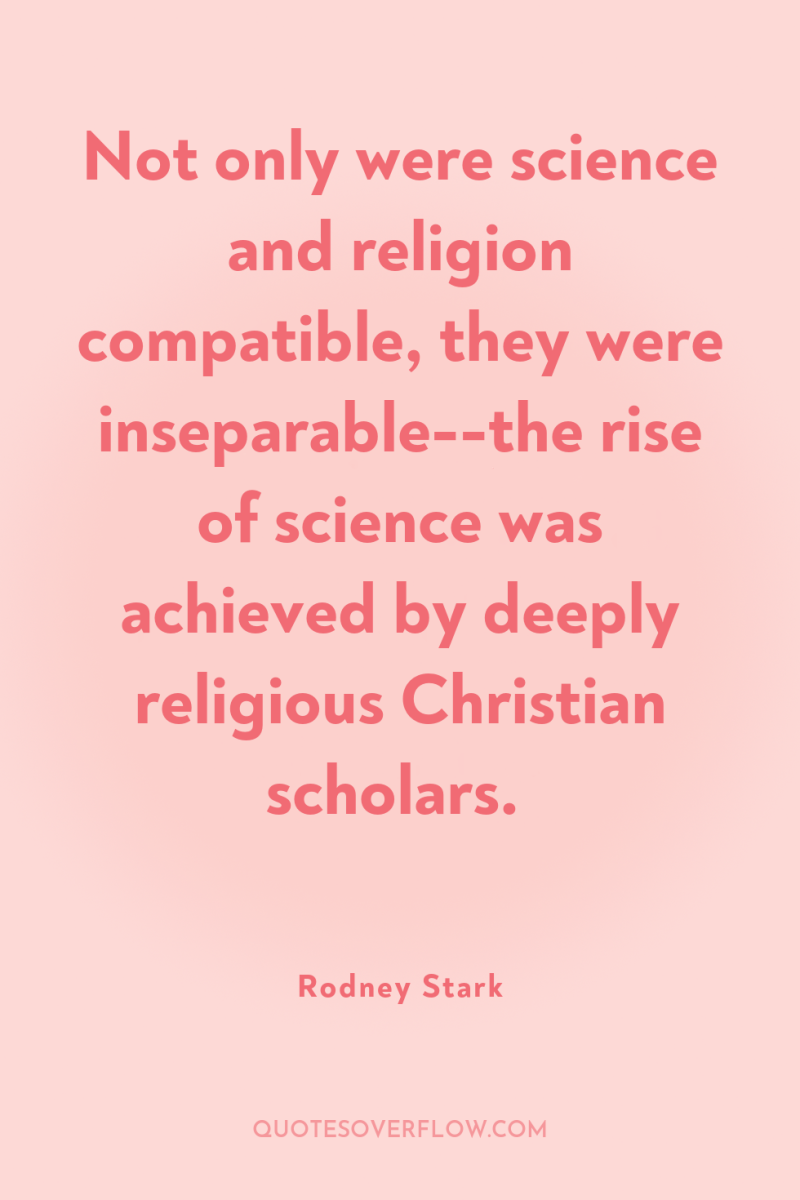1
As the historian Edward Grant explained, 'It is indisputable that modern science emerged in the seventeenth century in Western Europe and nowhere else'..The crucial question is: Why?My answer to this question is as brief as it is unoriginal: Christianity depicted God as a rational, responsive, dependable, and omnipotent being and the universe as his personal creation, thus having a rational, lawful, stable structure, awaiting human comprehension.Rodney Stark

2
Not only were science and religion compatible, they were inseparable--the rise of science was achieved by deeply religious Christian scholars.Rodney Stark
3
Because God is perfect, his handiwork functions in accord with immutable principles. By the full use of our God-given powers of reason and observation, it ought to be possible to discover these principles. These were the crucial ideas that explain why science arose in Christian Europe and no where else.Rodney Stark
4
Because God is a rational being and the universe is his personal creation, it necessarily has a rational, lawful, stable structure, awaiting increased human comprehension. This is the key to many intellectual undertakings, among them, the rise of science.Rodney Stark
5
Slavery ended in medieval Europe only because the church extended its sacraments to all slaves and then managed to impose a ban on the enslavement of Christians (and of Jews). Within the context of medieval Europe, that prohibition was effectively a rule of universal abolition.Rodney Stark
6
That new technologies and techniques would be forthcoming was a fundamental article of Christian faith. Hence, no bishops or theologians denounced clocks or sailing ships--although both were condemned on religious grounds in various non- Western societies.Rodney Stark